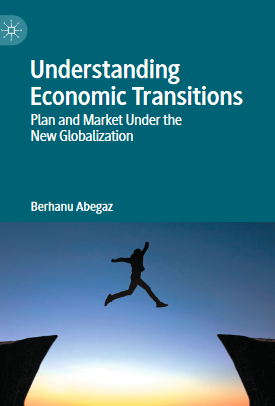موضوعات
آموزش و پرورش
ادبیات و زبان
پزشکی، دندانپزشکی و داروسازی
تاریخ و جغرافیا
داستان و رمان
دیگر
دین و فلسفه
روانشناسی
ریاضیات و آمار
سلامتی، تناسب اندام و رژیم غذایی
شیمی و پلیمر
علوم اجتماعی و حقوق
علوم زیستی و بیوتکنولوژی
فیزیک و نجوم
کامپیوتر و اینترنت
کتابهای کودکان و داستان
کسب و کار و اقتصاد
کشاورزی و دامپزشکی و غذا
معماری
مهندسی و فناوری
هنر و تئاتر
محصولات
Understanding Economic Transitions - Original PDF
نویسندگان: خلاصه: Around 1990, about a quarter of the world’s population lived in middle-income socialist economies and another quarter in high-income and middle-income cap- italist economies. The remainder lived in low-income economies with varying admixtures of planning, markets, and informal exchange institutions. Forty years later, the remaining outposts of socialism are Cuba and North Korea, while a few others (mainly in the former states of the Soviet Union) wallow in the no man’s land of neither functional capitalism nor socialism. The USSR sustained seven decades of statist socialism between 1922 and 1992, Central Eastern Europe (CE) and Southeastern Europe (SEE) for nearly five decades, and China for a little over three decades. By 2000, nearly all have systemically “transitioned” from a centrally-planned economy to some form of a decentrally organized market economy. How and why large parts of Europe, Eurasia, and East Asia transitioned out of the capitalist system in 1917–1952, how they managed to industrialize in non-market settings, and how and why they came back to the capitalist fold are questions comparative economic systems seek to address. Furthermore, this wrenching structural change entailed a concomitant political transition from a monoparty system to an illiberal multiparty system in formerly socialist Europe and the former Soviet Union (FSU). Comparative Economic Systems (CES) focuses on the workings of institu- tional economic mechanisms across economic systems and income levels. CES, at the macro-, meso-, and micro-levels, dwells on the two foundations of an economic system: ownership types for productive assets (state vs. private) and the degree of centralization of decision-making over resource allocation and income distribu- tion (plan vs. market). The conceptual entry points are incentives (known rewards or residual legatee rights) and the sources of discipline (bureaucratic-based or market-based competition). More broadly, Comparative Economics (CE), which is broader than CES, melds the study of economic systems with historical insti- tutionalism and development economics to explore the determinants of prosperity and inequality properties over time and across economic space within a given economic systemآیا کتاب مورد نظر هنوز بر روی سایت قرار نگرفته است؟ جای نگرانی نیست! کافی است بر روی گزینه سفارش کتاب کلیک کرده و درخواست خود را ثبت کنید. در کمتر از چند ساعت کتاب شما را آماده خواهیم کرد.
